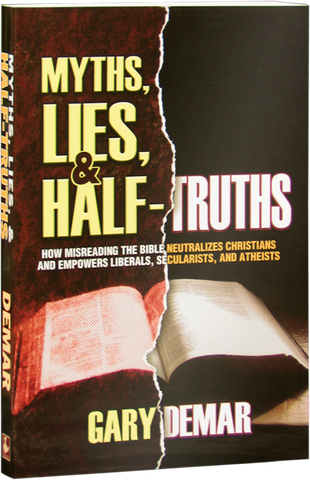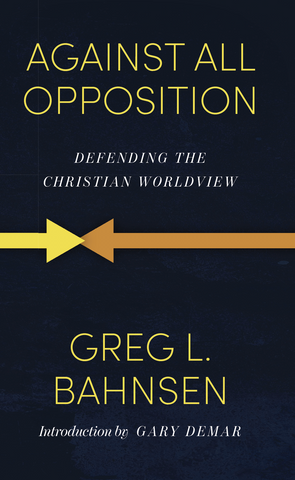Ray Kroc, founder of the McDonald’s fast food restaurant chain wrote the following in his book Grinding it Out: “I believe in God, family and McDonald’s—and in the office, that order is reversed. If you are running a hundred-yard dash, you aren’t thinking about God while you’re running. Not if you hope to win. Your mind is on the race. My race is McDonald’s.”[1]
Kroc’s statement reminds me of the made-for-television movie Brian’s Song (1971) which is the moving story of Gale Sayers’ friendship with Brian Piccolo when they played for the Chicago Bears and Piccolo was fighting an aggressive form of cancer to which he succumbed at the age of 26. Sayers tells the story in his 1970 autobiography, I Am Third. The title is based on his philosophy of life, “The Lord is first, my friends are second, and I am third.” While Kroc’s worldview is crass and unChristian, the one by Sayers is endearing and a credo to follow. But unless “the Lord is first” means first in everything beyond its use as a cliché, like saying “God bless you” after someone sneezes, it isn’t much different practically from Kroc’s business philosophy that God is third.
Abraham Kuyper (1837-1920), homeschooled by his father, minister in the Dutch Reformed Church, prime minister of the Netherlands, editor of the newspaper The Standard, president of the Free University of Amsterdam, founder of the Anti-Revolutionary Party, and prolific author, said, “There is not a square inch in the whole domain of our human existence over which Christ, who is Sovereign over all, does not cry, ‘Mine!’”[2] Too often, practically speaking, Christians choose “there is not one inch of creation of which Satan doesn’t say ‘Mine,’” this side of the rapture or some other end-time event. And even after the so-called millennium, Satan is given permission to wreak havoc again.
John MacArthur said the following after Joe Biden’s inauguration in 2021:
We don’t win down here, we lose. You ready for that? Oh, you were a postmillennialist, you thought we were just going to go waltzing into the Kingdom if you took over the world? No, we lose here — get it? It killed Jesus. It killed all the apostles. We’re all going to be persecuted.
Can you imagine if this type of message prevailed 2000 years ago?
There are many Christians who see no direct relationship between their Christian faith and business and politics and everything else. It’s not that they are hypocrites, although they may be. Their Christianity, like Kroc’s, could be more cultural and social than authentic. It’s more likely that they were taught that the Bible does not apply to their larger world, certainly not when it comes to law, economics, business, and politics because there is a fixed sacred-secular divide.

Myths, Lies, and Half-Truths
Christianity's failure to show itself practical in the past 150 years has guaranteed the success of secularism and militant Islam, both of which are doing incalculable harm at home and abroad. The rejection of any type of "this-worldly" application of the Bible has resulted in the proliferation of man-centered worldviews that have steadily drained the life out of our world and left behind a spiritual vacuum.
Buy NowThe pastor does not address politics from the pulpit since Jesus didn’t get mixed up in politics, there’s a separation between church and state, our citizenship is in heaven, politics is dirty, you can’t impose your morality on other people, we don’t want to offend people, we’re told not to judge, we are to render to Caesar the things that are Caesar’s, etc., etc. As a result, Christians often adopt the broader culture’s version of the role that the State plays in our lives because we are the losers in history. Persecution is out lot in life, and there is nothing we can or should do to stop it.
When it comes to business, “business is the business of business” (sacred/secular divide) and nothing more needs to be said. It’s just the way things are and are going to be.
There is a prevailing belief held by many Christians that the laws of God are not applicable today because we are under grace not law, and since the Old Covenant has passed away, moral laws from the Old Testament are no longer applicable. It’s amazing that such a belief comes from some preterists. They are closer to dispensationalism on this point. Donald Grey Barnhouse, a dispensationalist, wrote the following in his commentary on Romans:
It was a tragic hour when the Reformation churches wrote the Ten Commandments into their creeds and catechisms and sought to bring Gentile believers into bondage to Jewish law, which was never intended either for the Gentile nations or for the church.[3]
One Christian website argues that since the Bible says “Every person is to be in subjection to the governing authorities. For there is no authority except from God, and those which exist are established by God” (Rom. 13:1), that Christians have no biblical right to oppose abortion clinics and businesses that openly promote homosexuality. Why? We are in the dispensation of grace. We live in a parenthetical moral and cultural limbo. Here’s how some in the anti-law crowd argue: “These pastors are trying to turn unsaved pagans into righteous heathen instead of presenting them with the gospel as Paul did.”[4] One must wonder how such an argument would apply to slavery and gas ovens. In his book When a Nation Forgets God, Erwin Lutzer retells a Christian’s story of living during the Nazi Holocaust:
I lived in Germany during the Nazi Holocaust. I considered myself a Christian. We heard stories of what was happening to the Jews, but we tried to distance ourselves from it, because what could anyone do to stop it?
A railroad track ran behind our small church, and each Sunday morning we could hear the whistle in the distance and then the wheels coming over the tracks. We became disturbed when we heard the cries coming from the train as it passed by. We realized that it was carrying Jews like cattle in the cars!
Week after week the whistle would blow. We dreaded to hear the sound of those wheels because we knew that we would hear the cries of the Jews en route to a death camp. Their screams tormented us.
We knew the time the train was coming, and when we heard the whistle blow we began singing hymns. By the time the train came past our church, we were singing at the top of our voices. If we heard the screams, we sang more loudly and soon we heard them no more.
Years have passed, and no one talks about it anymore. But I still hear that train whistle in my sleep. God forgive me; forgive all of us who called ourselves Christians yet did nothing to intervene.[5]
If Christians serve politically, what standard should they apply to the civil sphere? Should Christians even participate politically? If they do, is it a violation of Romans 13 to oppose the funding of unconstitutional programs, abortion, and homosexual marriage? Must we wait until all these legislators become Christians? But even then, will these Christians be informed well enough to base their legislation on a biblical standard?
How did we get like this? There are numerous Christians who believe that a personal, private faith is all the gospel requires. Os Guinness described this as “The Private-Zoo Factor,”[6] a religion that is caged so that it loses its wildness. When true Christianity is applied to any part of the world, it blossoms far more fully and colorfully than we ever could have imagined. When pagans stopped believing that they lived in “an enchanted forest” and that “glens and groves, rocks and streams are alive with spirits, sprites, demons” and “nature teems with sun gods, river goddesses, [and] astral deities,”[7] at that moment their world and everything in it changed. Everything seemed possible within the boundaries of God’s providence and law. A Christian worldview made science possible and civil government ministerial rather than messianic. Stanley Jaki, the author of numerous books on the relationship between Christianity and science, comments:
Nothing irks the secular world so much as a hint, let alone a scholarly demonstration, that supernatural revelation, as registered in the Bible, is germane to science. Yet biblical revelation is not only germane to science—it made the only viable birth of science possible. That birth took place in a once-Christian West.[8]
Over time, Christianity ceased to be a comprehensive, world-changing religion. “[W]here religion still survives in the modern world, no matter how passionate or ‘committed’ the individual may be, it amounts to little more than a private preference, a spare-time hobby, a leisure pursuit.”[9] Theodore Roszak used an apt phrase to describe much of modern-day Christendom: “Socially irrelevant, even if privately engaging.”[10] It wasn’t always this way:
The Bible, both the Old Testament and the New Testament, comes out of the background of a Hebrew mindset. The basic idea behind the Hebrew mindset is that God and accompanying spiritual principles permeate all of life here on earth. … I believe one of the causes of [cultural disengagement is a Greek mindset], which tells us Christians should be concerned about saving souls and going to heaven rather than paying much attention to material things like transforming our societies.
[James Davidson] Hunter, to the contrary says, “Most Christians in history have interpreted the creation mandate in Genesis as a mandate to change the world.”[11]
So long as Christianity remained nearly exclusively “privately engaging,” the secularists had no interest in disturbing the sleeping giant, and to our detriment there are too many Christians who are content with that.

Against All Opposition
The starting point is the God of the Bible. The Bible begins with this foundational presupposition: “In the beginning God created the heavens and the earth” (Gen. 1:1). Against All Opposition lays out the definitive apologetic model to help believers understand the biblical method of defending the Christian faith.
Buy Now[1] Ray Kroc with Robert Anderson, Grinding it Out: The Making of McDonalds’s (New York: St. Martin’s Press, 1992), 124. Emphasis in original.
[2] Abraham Kuyper, “Sphere Sovereignty,” in James D. Bratt, ed., Abraham Kuyper: A Centennial Reader (Grand Rapids: Eerdmans, 1998), 488.
[3] Donald Grey Barnhouse, God’s Freedom (Grand Rapids, MI: Eerdmans, 1958), 134. Quoted in S. Lewis Johnson, “The Paralysis of Legalism,” Bibliotheca Sacra, vol. 120 (April/June 1963), 109.
[4] Kent R. and Marti B. Rieske, “Church Bondage,” Bible Life Ministries: http://www.biblelife.org/bondage.htm
[5] (Chicago: Moody Publishers, 2010), 25-26.
[6] Guinness, The Gravedigger File, 79.
[7] Nancy R. Pearcey and Charles B. Thaxton, The Soul of Science: Christian Faith and Natural Philosophy (Wheaton, IL: Crossway Books, 1994), 23-24.
[8] Stanley Jaki, “The Biblical Basis of Western Science,” Crisis 15:9 (October 1997), 17-20. www.catholiceducation.org/articles/science/sc0005.html
[9] Guinness, The Gravedigger File, 72.
[10] Theodore Roszak, Where the Wasteland Ends (New York: Doubleday, 1973), 449.
[11] C. Peter Wagner, Dominion! How Kingdom Action Can Change the World (Grand Rapids, MI: Chosen, 2008), 40, 41.

